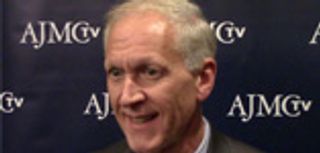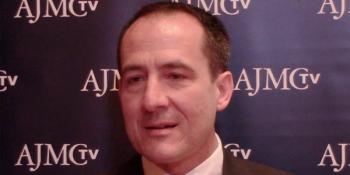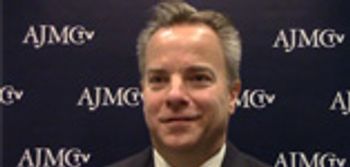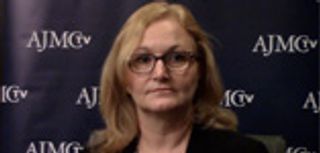
Value-Based Care
Latest News

Latest Videos

More News

This week, the top news in managed care included President Donald Trump's first address to Congress, which included guiding principles for replacing the Affordable Care Act, a leaked version of the House GOP's own draft for healthcare reform, and a study finds a concerning trend in colorectal cancer rates among young adults.

A recent paper in JAMA Internal Medicine examined the accountable care organization programs in Colorado and Oregon to determine their impacts on spending, access, and utilization.

At the 5th annual Patient-Centered Oncology Care® meeting, stakeholders shared their views on how bundled payments, clinical pathways, and other value-based approaches can be implemented in cancer care while ensuring adequate care quality.

As payment models shift to emphasize patient experience and quality of care, a panel discussion at the 5th annual Patient-Centered Oncology Care® meeting debated whether these efforts had meaningfully improved outcomes for patients.

This article compares how parents of children seeking specialty care perceive National Committee for Quality Assurance—based patient-centered medical home elements in the primary and specialty care settings.

The transition to value-based care has been helpful in getting providers to examine their own performance and find ways to improve quality, said Andrei Gonzales, director of value-based reimbursement initiatives at McKesson Health Solutions.

CMS has been making efforts to reduce administrative burdens for physicians as the healthcare industry moves to value-based care through the implementation of the Medicare Access and CHIP Reauthorization Act (MACRA), said Mark McClellan, MD, PhD, director of the Duke-Margolis Center for Healthy Policy.

Research into the financial performance of Medicare accountable care organizations (ACOs) has found that organizations benefit from having prior experience with risk-bearing contracts, but that organizations that had reduced growth in healthcare spending before joining an ACO would find it difficult to improve further and share in savings, according to Marietou Ouayogode, PhD.

In Hennepin County, Minnesota, the local government has gotten into the business of healthcare and linked a variety of services into an accountable care organization (ACO) model that not only addresses beneficiaries' health needs, but also their social determinants of health, explained Ross Owen, health strategy director of Hennepin County..

The FDA has been willing to explore the utilization of surrogate endpoints like tumor response in clinical trials, but it is unclear whether these endpoints correlate with overall survival, said David Fabrizio of Foundation Medicine, Inc. However, he emphasized that overall survival does not necessarily benefit the patient if the additional days gained are not quality days.

Patients are becoming more engaged in their own healthcare, meaning they have more input in the quality measurement process and can even help develop quality measures for the future, said Eleanor Perfetto, PhD, senior vice president of strategic initiatives for the National Health Council.

Underinsurance, which occurs when people have insurance but aren't covered for services they need, is a serious problem in the US, according to A. Mark Fendrick, MD, director of the Center for Value-Based Insurance Design at the University of Michigan. He proposed some strategies to alleviate this phenomenon, like smarter deductibles and revised Internal Revenue Service (IRS) rules.

Patients with rare diseases often turn to the Internet for information on their illness, but an analysis of some of these websites found that their content often failed to meet important quality criteria and neglected key information categories.

Researchers have found that accountable care organizations with a higher proportion of minority patients tend to score worse on Medicare’s quality performance measures.

CMS understands that not all physicians will report quality measures under the Medicare Access and CHIP Reauthorization Act or join advanced alternative payment models, especially immediately, said Kate Goodrich, MD, director of the Quality Measurement and Value-Based Incentives Group in CMS. However, there are efforts in place to make it as easy as possible for these providers, which will hopefully increase participation over time.

Physicians have shown great interest in understanding how to transition into value-based processes, especially with the new rules under the Medicare Access and CHIP Reauthorization Act (MACRA), said Roy Beveridge, MD, chief medical officer of Humana. While these transitions take time and effort, they eventually lead to physicians being reimbursed more for longer visit times and improved outcomes.

More hospitals are switching to employment-based affiliations with physicians, but a recent analysis found no association between conversion to an employment model and changes in mortality, readmissions, length of stay, or patient satisfaction rates.

At the fall live meeting of The American Journal of Managed Care®'s ACO & Emerging Healthcare Delivery CoalitionTM, speakers discussed how to care for complex patients, and the latest in reimbursement.

A glimpse at the top 5 articles from The American Journal of Managed Care's® conference coverage that caught reader attention in 2016.

Gathering patient-reported outcomes and experiences is essential to evaluating the success of bundled payment models, said Ashish K. Jha, MD, MPH, the K.T. Li Professor of Health Policy at the Harvard T.H. Chan School of Public Health and the director of the Harvard Global Health Institute.

Contributors to AJMC.com bring fresh insight from their real-world experiences to discuss important subjects in managed care, which this year included topics like accountable care organizations, telehealth, and urgent care prescribing. Here are the 5 most-read articles from our contributors in 2016.

This week, the top managed care stories included CMS announcing more mandatory bundled payment models and a new track in the Medicare Shared Savings Program, the FDA approving a new use for Dexcom's continuous glucose monitor, and a greater emphasis on lifestyle management in the American Diabetes Association's care standards.

With the Medicare Access and CHIP Reauthorization Act (MACRA) set to take effect January 1, 2017, The American Journal of Managed Care has created a resource center, the MACRA Compendium, where payers and providers can find updates on the transition to value-based care.

Understanding the perspectives of clinicians and administrators who are leaders in implementing patient-centeredness in accountable care organizations can help point the way toward implementation by others.

Among Michigan primary care practices, sustained participation in a pay-for-value program appears to contribute to improved utilization outcomes for high-need patients.













